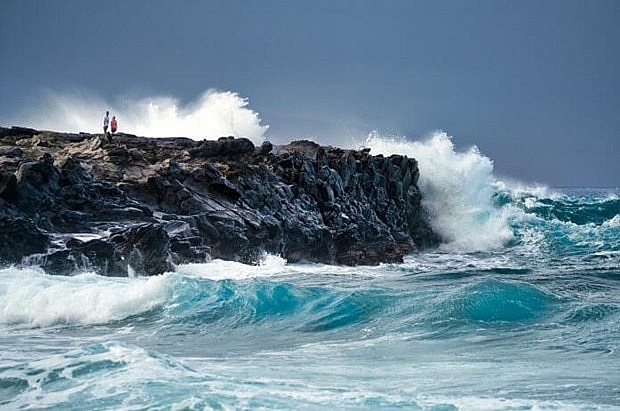Malaysia eyes wave energy for electricity generation
 |
| Malaysia eyes wave energy for electricity generation. (Photo: businesstoday.com.my) |
Kuala Lumpur - When one mentions renewable energy, the mind often jumps to familiar sources like solar energy, hydroelectric dams, and wind power. However, Malaysia is seeking measures to turn wave energy for electricity generation.
As the country boasts an extensive coastline pning approximately 4,800 km, it provides an ideal environment for harnessing ocean wave energy. While specific power generation figures may vary depending on factors such as wave characteristics and technology efficiency, estimates suggest that Malaysia’s coastal areas have the capacity to generate a significant amount of wave energy, potentially fulfilling one to four times the country’s electricity needs.
With dedicated research and development, Malaysia has a unique opportunity to tap into this renewable resource and contribute to its energy transition towards a cleaner and more sustainable future. By investing in wave energy technologies and infrastructure, the country can persify its renewable energy portfolio and reduce its carbon footprint to achieve net zero emissions.
The US Energy Information Administration (EIA) revealed a striking revelation: the theoretical annual energy potential of waves along the coasts of the US reaches an astonishing 2.64 trillion kilowatthours (kWh). This figure is equivalent to about 64 per cent of the total US utility-scale electricity generation in 2021, making it evident that waves possess vast untapped power.
Around the world, researchers have already embarked on the journey of exploring wave energy as a viable renewable resource. Notable institutions, such as the European Marine Energy Centre (EMEC) in Scotland, have been specifically established for testing ocean wave energy converters. Meanwhile, the PacWave South test site, located near the coast of Oregon, the US, provides researchers with a platform to study wave energy and test innovative technologies.
While the current installed wave energy capacity remains limited, with only 2.31MW in 2020 according to the International Renewable Energy Agency (IRENA), it is crucial not to underestimate the potential of this remarkable resource.
If countries around the world can jointly commit and increase support for energy conversion research from ocean waves, it will be a resource to create sustainable and efficient energy.
 | Malaysia expands Internet service in remote areas Malaysia has issued a license to Starlink, the satellite communications service started by Elon Musk, to provide internet services in the country, particularly in remote areas. |
 | Malaysia, Indonesia, EU agree to tackle concerns over deforestation rules Malaysia and Indonesia, the world's largest palm oil producers, have agreed with the European Union (EU) to promote mutual understanding and tackle concerns over the EU Deforestation Regulation (EUDR) and benchmarking via an ad hoc joint task force (JTF) co-chaired by the three parties. |
What the stars mean:
★ Poor ★ ★ Promising ★★★ Good ★★★★ Very good ★★★★★ Exceptional
Related Contents
Latest News
More News
- France supports Vietnam’s growing role in international arena: French Ambassador (January 25, 2026 | 10:11)
- Foreign leaders extend congratulations to Party General Secretary To Lam (January 25, 2026 | 10:01)
- Russian President congratulates Vietnamese Party leader during phone talks (January 25, 2026 | 09:58)
- Worldwide congratulations underscore confidence in Vietnam’s 14th Party Congress (January 23, 2026 | 09:02)
- Political parties, organisations, int’l friends send congratulations to 14th National Party Congress (January 22, 2026 | 09:33)
- 14th National Party Congress: Japanese media highlight Vietnam’s growth targets (January 21, 2026 | 09:46)
- 14th National Party Congress: Driving force for Vietnam to continue renewal, innovation, breakthroughs (January 21, 2026 | 09:42)
- Vietnam remains spiritual support for progressive forces: Colombian party leader (January 21, 2026 | 08:00)
- Int'l media provides large coverage of 14th National Party Congress's first working day (January 20, 2026 | 09:09)
- Vietnamese firms win top honours at ASEAN Digital Awards (January 16, 2026 | 16:45)

 Tag:
Tag:




















 Mobile Version
Mobile Version